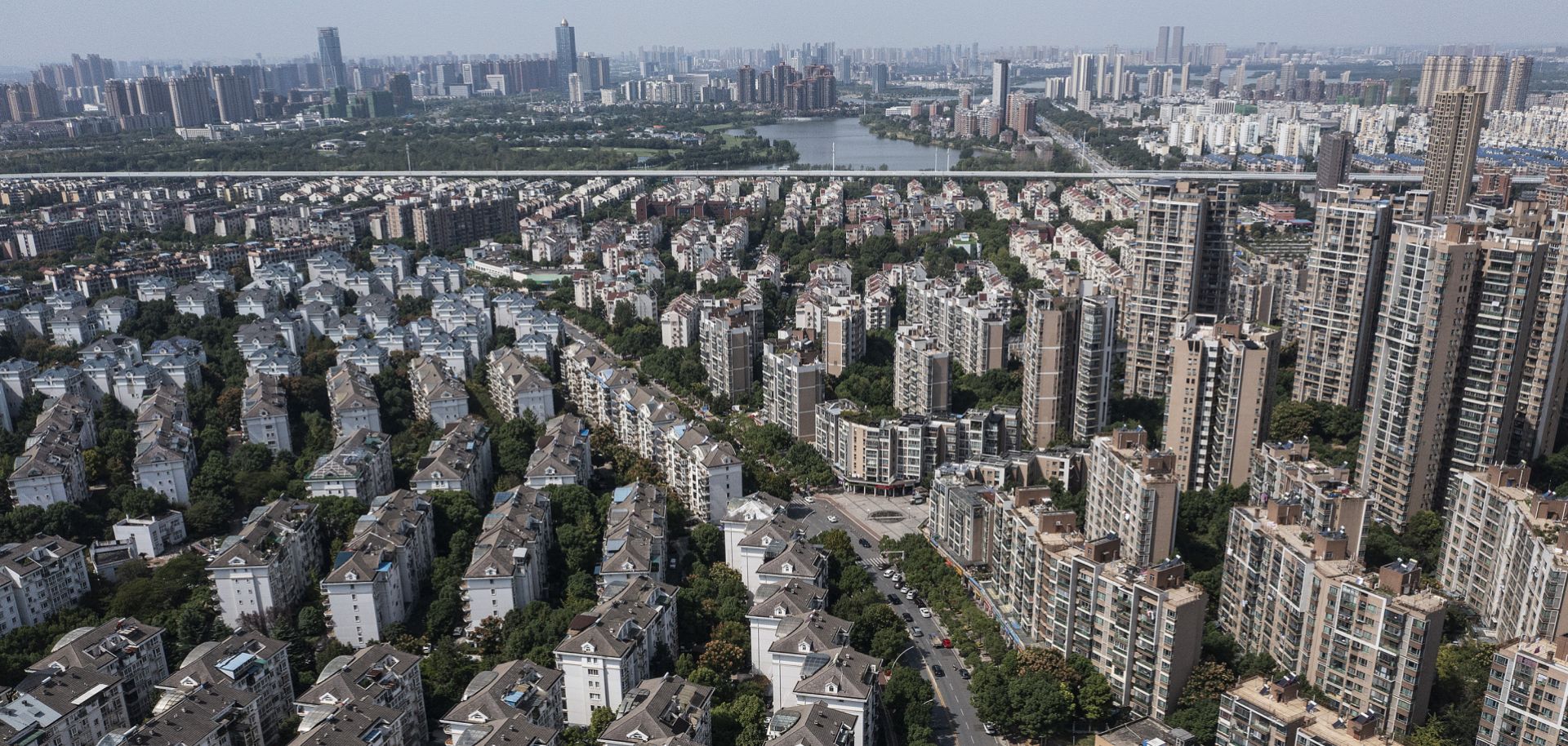In China, the financial distress of real estate developers creates significant risks to the housing market, banks and medium-term economic growth. China's real estate sector has been in turmoil since Evergrande defaulted on its debt in early 2021 and prompted other major Chinese property developers (including Kaisa Group and Shimao Group) to follow suit. The current crisis is a direct consequence of the government's efforts to restrict the amount of debt that developers can take on to fund their projects. By clamping down on property developers (who are estimated to carry $5 trillion worth of debt, which is equivalent to roughly one-third of China's overall GDP), Beijing is hoping to reduce a further build-up of financial risks in the real estate sector and, in turn, rebalance China's economy away from construction-intensive growth and toward a more sustainable growth path. This, however, is proving to be a risky balancing act as...

